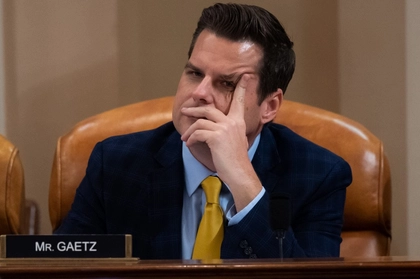Thirty five years ago today [Nov. 9], the Berlin Wall did not fall.
I realize that I am running against the torrent of anniversary remembrances here. And no doubt you are thinking: he means this metaphorically; he means that some mental barrier remains between East and West, or perhaps between eastern and western Germany.
JOIN US ON TELEGRAM
Follow our coverage of the war on the @Kyivpost_official.
No, I mean that, quite literally, the Berlin Wall did not fall. It did not fall 35 years ago today. It never fell. The “fall of the Berlin Wall” is a literary device, not a historical event.
And that we have chosen a false image to stand for a moment of liberation reveals a problem.
But first, a reminder of what did happen. At the time, East and West Germany were two different countries. Berlin was a special island inside East Germany, itself divided between Western and Eastern parts. A physical wall did indeed separate the two, built by the East German regime to keep their people in.
In summer and autumn 1989, amidst Mikhail Gorbachev’s perestroika and reforms and gestures among neighboring communist countries, East Germans were finding ways to visit or to emigrate to West Germany. The East German regime, in turmoil itself amid protests, was trying to formulate a new set of rules for the border. Amidst a great deal of confusion, a regime spokesman seemed to announce, in response to a question by an Italian journalist, that the border posts at the wall would allow East Germans to depart for the West.

Ukraine Critic and Trump Loyalist Matt Gaetz Withdraws Nomination as US Attorney General
That was on Nov. 9, 1989. he Berlin Wall did not topple over because of that press conference. What happened was that tens of thousands of East Berliners took advantage of the pronouncement and crowded the border checkpoints, one of which eventually opened. People rushed through to forbidden West Berlin, where they were greeted with champagne and flowers. It was a night that changed the history of Germany, which would unify less than a year later.
But no wall actually fell. People eventually clambered on it, and chipped off pieces of it (I have a few, somewhere). People painted on it for a while, which is why those concrete souvenirs are colorful. On New Year’s Eve, 1989, David Hasselhoff played a concert over the Berlin Wall, in a crane. The wall was of course still standing, because it had not fallen down.
Words matter. Pretty much everyone says “the fall of the Berlin Wall” as a shorthand for the “the end of communism in eastern Europe.” But something that never happened cannot be a source of an actual memory. It cannot teach us, for example, how authoritarianism is resisted.
The image of a wall falling transforms a complicated history into a simple moment. But when we embrace that image of something that never happened, we lose everything that we need to remember, everything that is human and interesting.
The opening of the checkpoint that night was an accident. But it was an accident made possible by human action. East Germans had chosen to leave their country. They were protesting, and believed that they could protest in part because other people were doing so. The largest and most effective protests were in neighboring Poland. They went back to the foundation of a labor union, Solidarity, in 1980. By November 1989, Poland had already formed a post-communist government.
And that of course is the Polish gripe with the whole “Berlin wall falling” story. Poles will want you to know that Poland was more important than East Germany in the history of the end of communism. And that is very true. But the crucial thing to remember is what Poles did. In the face of dictatorship they found concepts of cooperation and lived them.
The resistance to communism was a human story of cooperation. Its dissidents stressed the need to work together. Its most important organization was a union. When a certain conjuncture emerged in 1989, it was these practices and traditions that allowed new political alternatives to emerge. The human cooperation, called “civil society” at the time, was not enough in itself to change the world. But when the world began to change in other ways, people were ready.
When we imagine the Berlin Wall falling, as we will be summoned to do today, we are instructed that freedom is something that just happens. The wall was up. Bad. And then it fell. Good. We think of freedom like that because it removes the responsibility from us. And that is the wrong lesson, wrong historically and so wrong politically and morally.
Thirty five years ago today, the Berlin Wall did not fall.
Thirty five years ago today, some people made history, amidst other people making history, thanks to some prior cooperation, and some good thinking about what freedom means.
We cannot change the world all at once. But we can change the way we think. We can clear away the clichés and make ourselves more lively. We can work together and then, when other things are in motion, be ready to turn the change in the right direction.
Reprinted from Timothy Snyder’s “Thinking about...” [email protected]. See the original here.
The views expressed in this opinion article are the author’s and not necessarily those of Kyiv Post.
You can also highlight the text and press Ctrl + Enter






